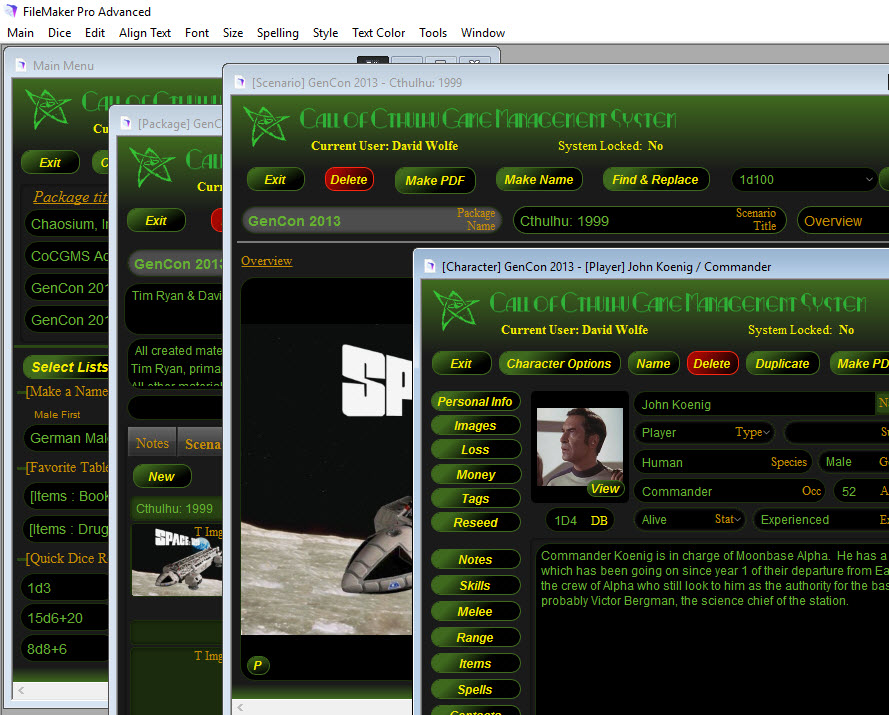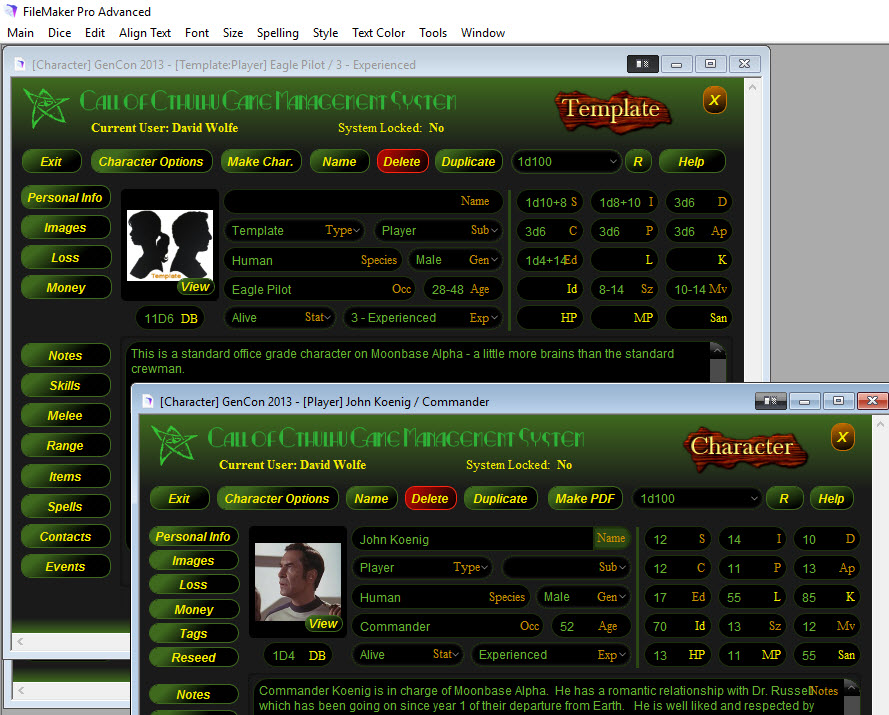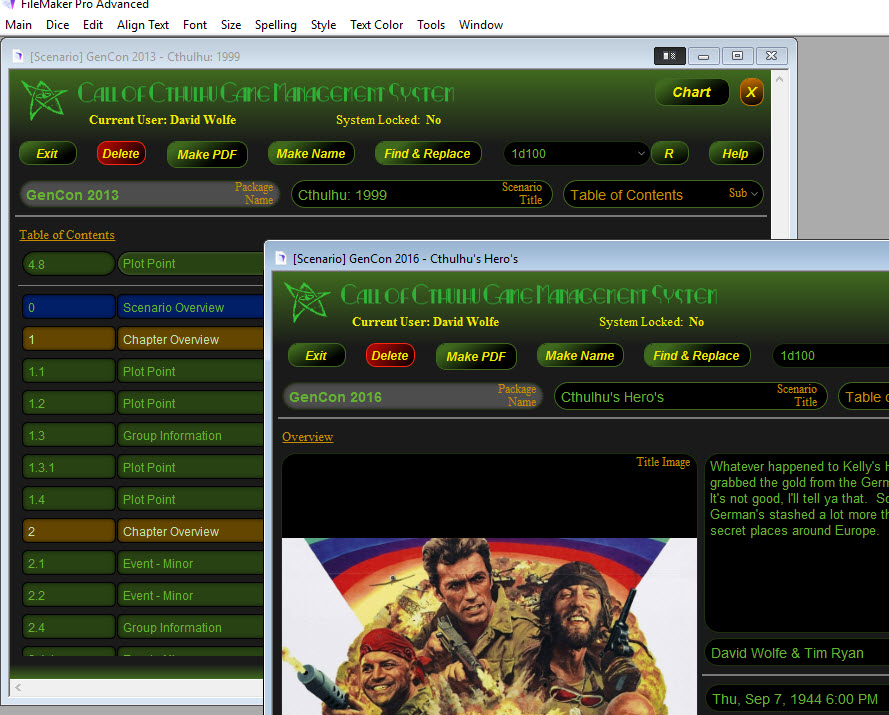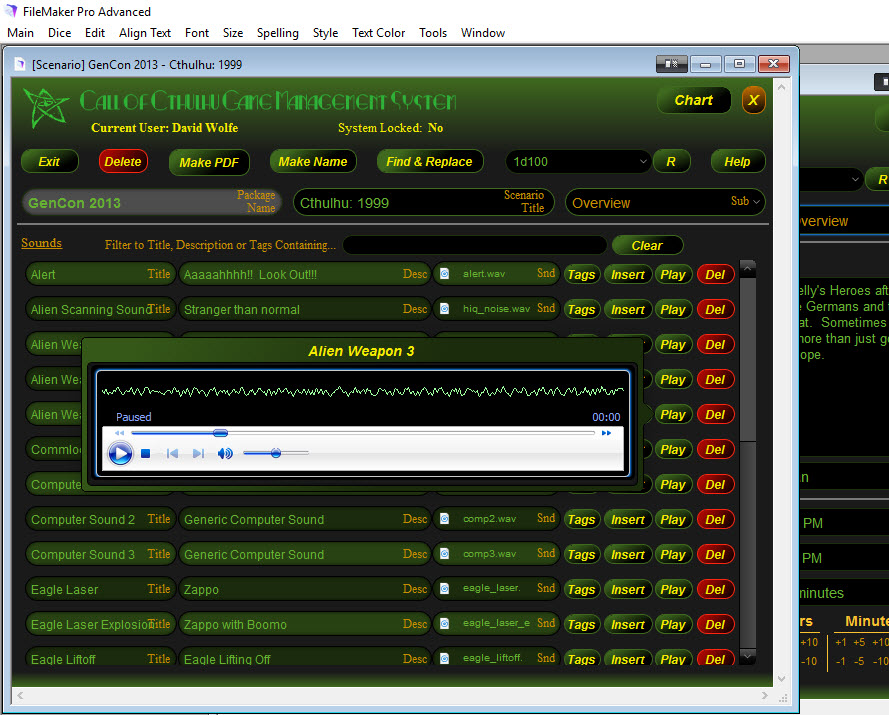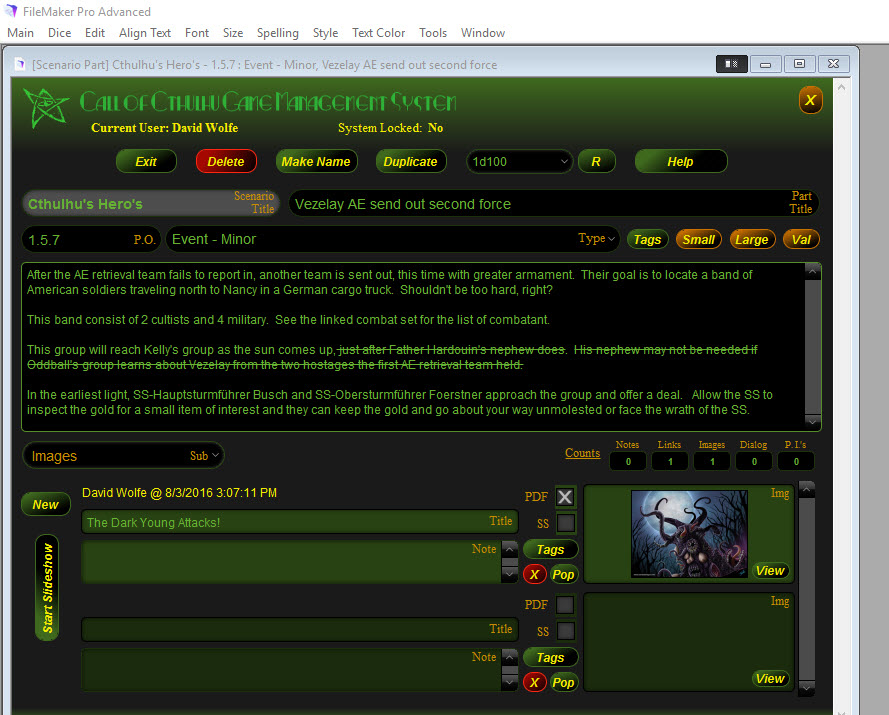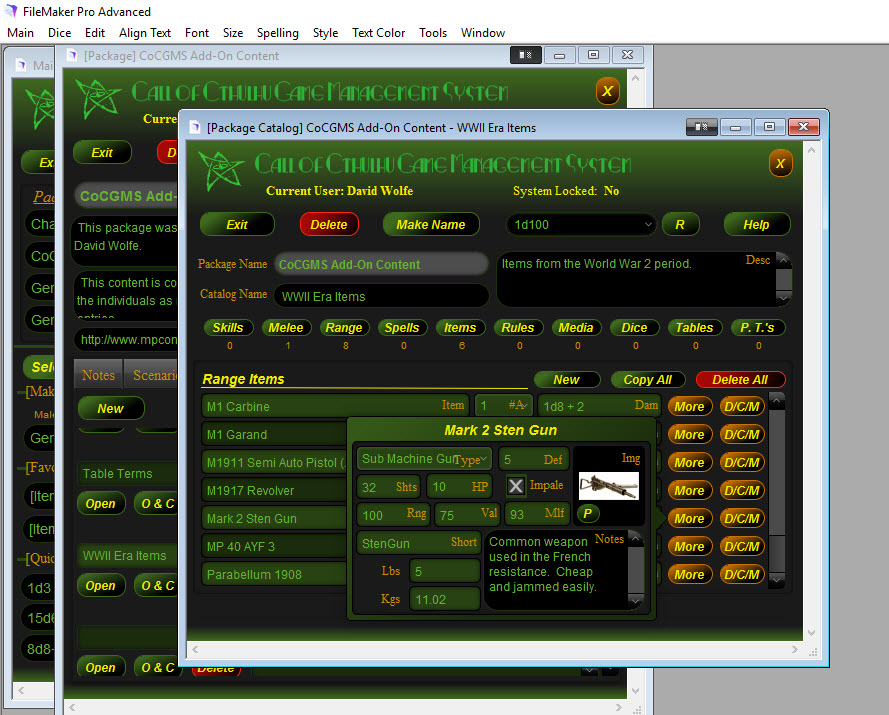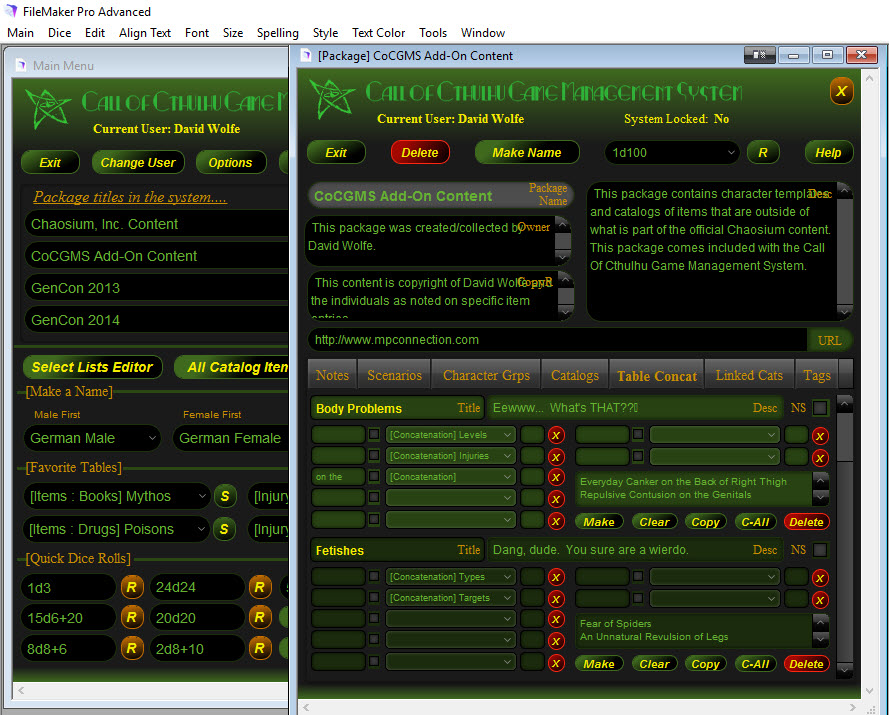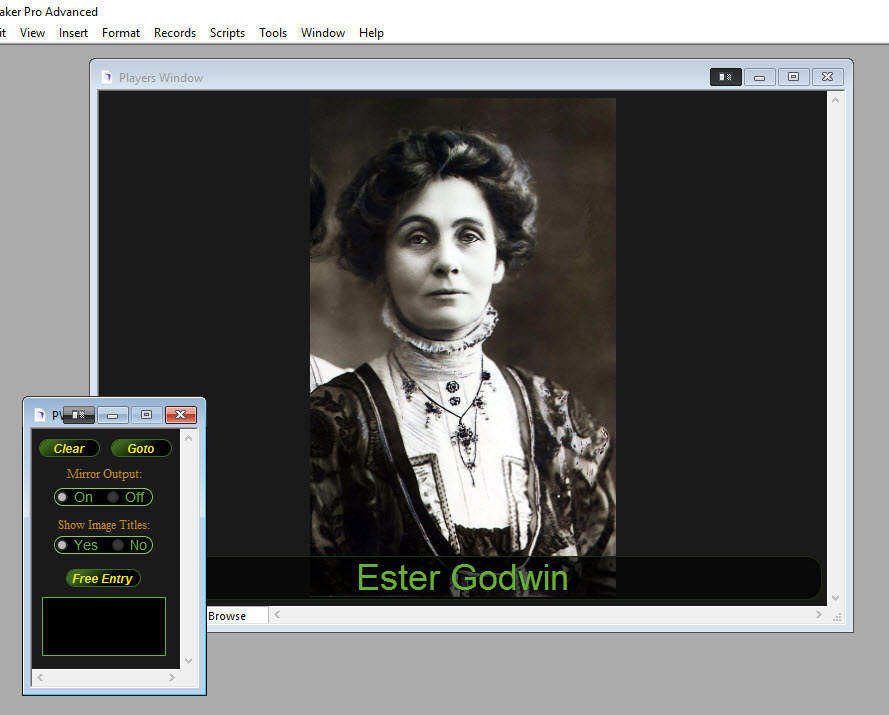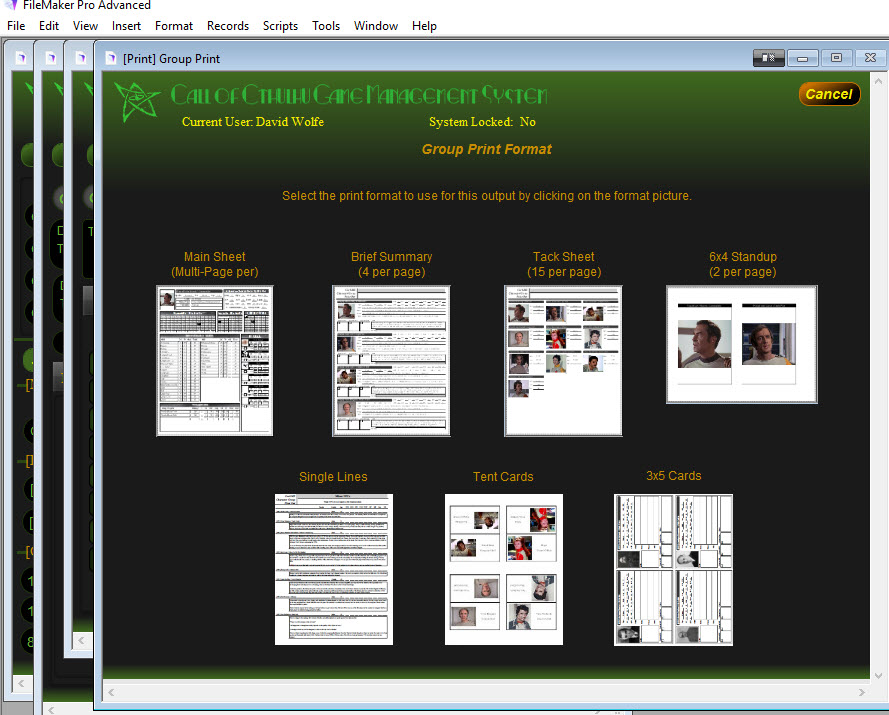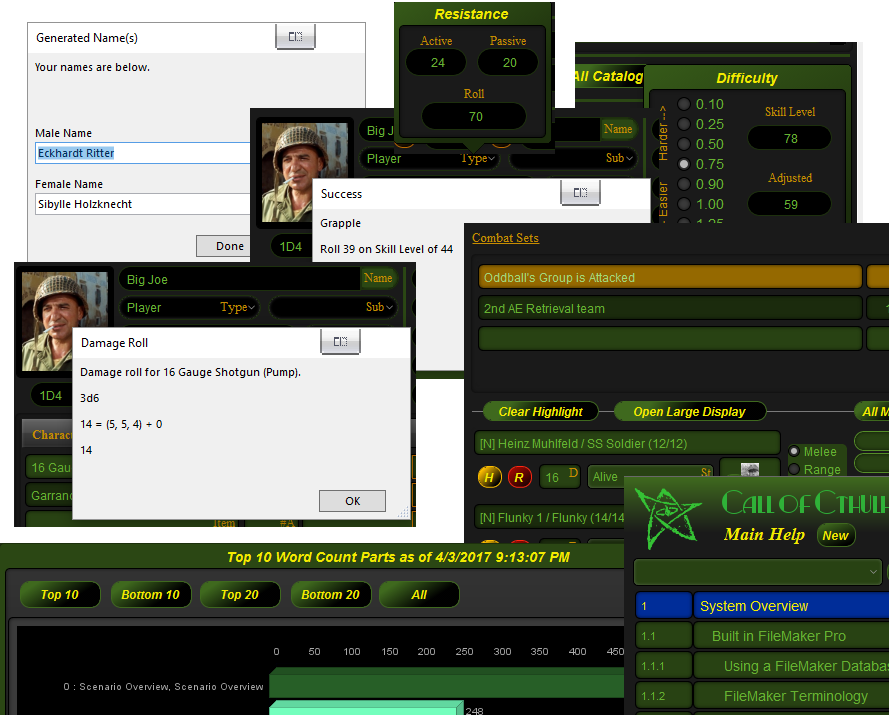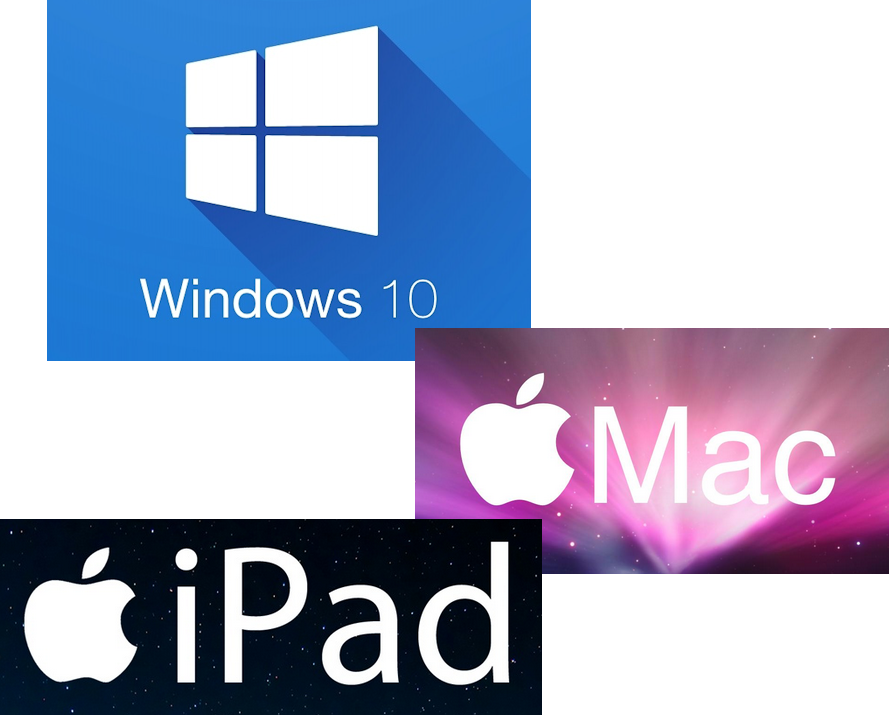System Options

System Options are accessible from the Main Menu. Here you can control several aspects of the CoCGMS.
The system can be locked to prevent changes. This is useful if you'd like to post your database file for download for others to use but would like to preserve the content as-is like commercial content might be protected. You specify the unlock password when the system is locked and that is required to unlock it in the future. Certain fields and areas will remain editable such as character damage/san/power trackers, money trackers, etc. But all other content cannot be changed until the system is unlocked.
In conjunction with locking the system, you can specify an opening splash image and text to be displayed when the database file is opened. This lets you give an intro image and text to anyone who opens the system and can add a level of presentation that can snazz up the content.
The Window Limiter is a feature in the system (on by default) that keeps you from having too many windows open. If the feature is on and you open a window that is already open in the background, that existing window will jump to the foreground. However there are times when you do want the same window open multiple times and this option lets you control that.
The roll skew and threshold options allow you specify a "cheat" value that will be added or subtracted to d100 rolls made by the system. If you want to make system rolls go easier on the players, specify a positive number making d100 rolls generally higher and failing more often. Since the keeper will be making the dice rolls for the NPCs and monsters of a game, this essentially makes the luck of the roll go more in favor of the players. A negative skew makes d100 rolls lower and more successful for the keeper. The threshold is the floor or ceiling of the natural d100 roll where the skew will be applied. For instance, a threshold of 80 when the skew is 10 means that only natural d100 rolls made by the system that are AT OR BELOW 80 will have the skew added to the roll. A threshold of 40 when the skew is -15 means that only rolls AT OR ABOVE 40 will have the skew subtracted from it. This keeps the roll outcome from being out of a d100 range and clearly showing the keeper as tweaking the rolls.
